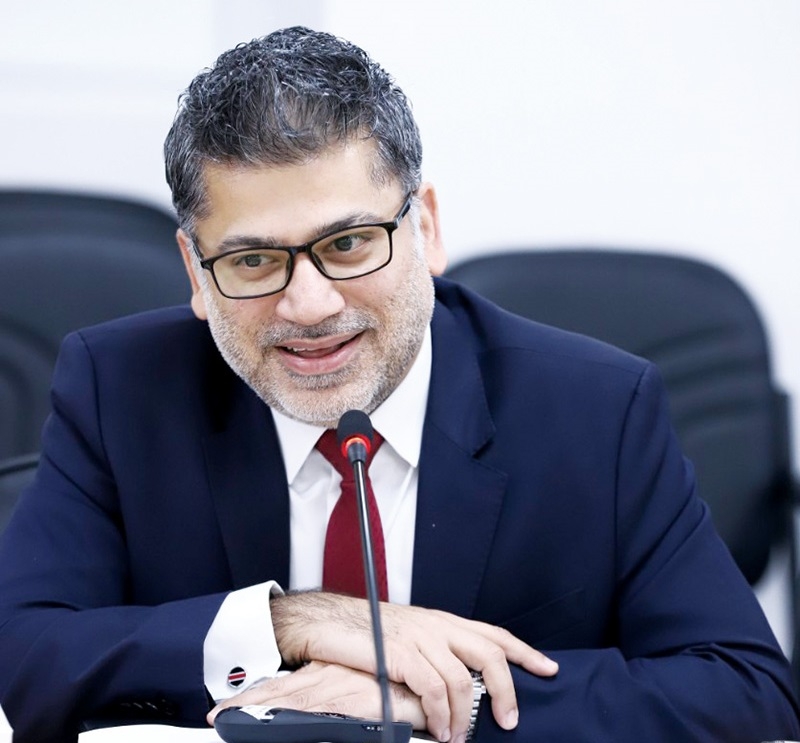AstraZeneca championing public-private partnerships
Last year was very taxing for the healthcare sector as the pandemic has led to a dramatic loss of human life worldwide and presents an unprecedented challenge to public health. How has AstraZeneca Vietnam contributed to increasing patient access over the past year?
 |
| Nitin Kapoor, chairman and general director of AstraZeneca Vietnam |
While it has been a real test to the world, our innovative and patient-centric spirit has helped us not only rise to the unique challenges posed by the pandemic but also ensure that we leave no patients or healthcare professionals behind in this trying time. As we are celebrating Doctors’ Day in Vietnam, I want to thank all the doctors, nurses, and healthcare staff for their tireless efforts to keep us safe.
Globally and in Vietnam, AstraZeneca is committed to ensuring broad and equitable access to our COVID-19 vaccine. We are proud and thankful for the Ministry of Health (MoH) and the Drug Administration of Vietnam’s conditional authorisation of our COVID-19 Vaccine AstraZeneca for emergency use. We are partnering with Vietnam Vaccine JSC to deliver 30 million doses of the vaccine to the country, starting from the first half of 2021.
To support Vietnam’s healthcare system when it faced great shortages, last year AstraZeneca donated 400,000 medical masks to the MoH and personal protective equipment to the National Hospital for Tropical Disease. Our contributions to Vietnam’s fight against the pandemic were recognised with the Minister of Health’s Award of Excellence.
In July, our major structural and operational transformation was completed when we became one of the first pharmaceutical multinationals to successfully transition to a foreign-invested enterprise and sign a landmark local distribution partnership. This change has allowed us to better deliver our innovative, high quality medicines to millions of Vietnamese patients.
We have also accelerated our digital transformation, reaching over 80,000 healthcare professionals virtually even during pandemic restrictions and supporting major hospitals in their telehealth and digital healthcare education programmes, all to ensure that patients’ access to healthcare is not disrupted.
Along with the global health crisis, the Vietnamese healthcare sector is facing a growing burden of non-communicable diseases (NCDs). How important is partnership in easing this in the community?
The increasing healthcare needs and growing NCD burden require that we form robust and comprehensive collaborations in order to achieve better health outcomes for patients. Public-private partnerships also play a vital role as they can contribute diverse and complementary resources towards a mutual goal in a shorter time. AstraZeneca Vietnam’s mission is to reduce NCD burden in Vietnam, and we have been a long-term partner with the government, the MoH, and healthcare institutions to maximise our collective impact.
In our 27-year operations in Vietnam, our most notable sustainability programmes include the Healthy Lung Programme where we partner with the Medical Service Administration and respiratory medical associations to improve outpatient management for asthma, COPD, and lung cancer; and the Young Health Programme through which we work with the MoH and Plan International to reduce NCD risk behaviours amongst young people. In 2018 and 2019, to raise awareness of NCDs and increase their early detection, we also organised two community days in Hanoi where our volunteers provided 1,000 free screenings and consultation sessions.
Reflecting on this past year, what do you think is the biggest lesson from COVID-19, and how can we avoid letting it happen again?
These are tough questions that I’m sure many world leaders have been asking. What we’ve witnessed is how vulnerable the global health system is in the face of crises such as pandemics or natural disasters. COVID-19 has really highlighted the importance of early detection of diseases, disaster contingency plans and preparedness, trust in science, transparent and decisive leadership, and cross-border and cross-sectoral partnership.
The Vietnamese government and the MoH have demonstrated the best practice in pandemic response – leading the country effectively through the pandemic and protecting lives, while maintaining remarkable economic growth.
As crises will continue to happen in the future whether we like it or not, it’s vital that we increase healthcare systems’ sustainability and resilience so that they are resistant to whatever comes in their way. AstraZeneca Vietnam is contributing our part via two programmes – one is the Partnership for Health System Sustainability and Resilience with the World Economic Forum, London School of Economics, and Vietnam’s Health Strategy and Policy Institute to generate insights on how Vietnam’s healthcare system can be strengthened. The other one is Green Energy for Health, where we donate solar energy systems to local healthcare stations in disadvantaged areas, allowing them to save costs and improve energy supply stability.
What the stars mean:
★ Poor ★ ★ Promising ★★★ Good ★★★★ Very good ★★★★★ Exceptional
Themes: Healthcare Platform
- PM outlines new tasks for healthcare sector
- Opella and Long Chau join forces to enhance digestive and bone health
- Hanoi intensifies airport monitoring amid Nipah disease risks
- Cosmetics rules set for overhaul under draft decree
- Policy obstacles being addressed in drug licensing and renewal
Related Contents
Latest News
More News
- Digital shift reshaping Vietnam’s real estate brokerages (December 31, 2025 | 18:54)
- Allen & Gledhill recognised as Outstanding M&A Advisory Firm (December 18, 2025 | 14:19)
- Inside Lego Manufacturing Vietnam (December 18, 2025 | 11:45)
- The next leap in Cloud AI (December 11, 2025 | 18:19)
- Vietnam’s telecom industry: the next stage of growth (December 11, 2025 | 18:18)
- Five tech predictions for 2026 and beyond: new era of AI (December 11, 2025 | 18:16)
- CONINCO announces new chairman and CEO (December 10, 2025 | 11:00)
- How AWS is powering the next-gen data era (December 09, 2025 | 13:14)
- Outlook in M&A solid for Singapore (December 08, 2025 | 10:31)
- Vietnamese firms are resetting their strategy for global markets (December 05, 2025 | 17:04)

 Tag:
Tag:




















 Mobile Version
Mobile Version